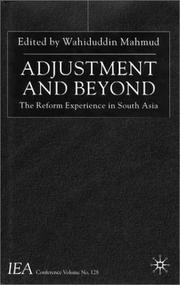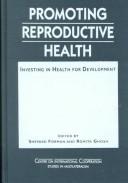| Listing 1 - 10 of 10 |
Sort by
|
Book
ISBN: 1003241778 1000485048 1000485080 1003241778 9781003241775 9781000485042 9781000485080 Year: 2021 Publisher: Boca Raton, FL : CRC Press,
Abstract | Keywords | Export | Availability | Bookmark
 Loading...
Loading...Choose an application
- Reference Manager
- EndNote
- RefWorks (Direct export to RefWorks)
"This book presents, or rather 're-presents', the intricacies of a developing economy in the light of recent theoretical developments in economics while also providing a fresh perspective on the perceived inadequacies of the discipline in addressing the discontents of the contemporary global economic order. The book argues that there is scope for economics to be a more humane discipline and more relevant to contemporary economic problems by embracing new ideas, including those from other disciplines. It shows how economic concepts including recent theoretical advances can help better understand real life economic phenomena; to rethink the ways of making the market economy address the moral issues of human well-being and social justice and; overall, how the study of economics at an introductory level and public discourses on economic issues can be made more engaging as well as more relevant to the problems of developing countries. Based on public lectures given by the author in Dhaka, and using illustrations from Bangladesh, India and other countries, the book offers an authoritative understanding of diverse economic realities by taking a fresh look at the familiar. Comprehensive and accessible, the book will be of interest to students and researchers of economics, development economics and policy, sociology and business studies as well as journalists, public intellectuals and policymakers in developing countries"--
Social justice --- Economics --- Moral and ethical aspects --- Developing countries --- Economic conditions.
Book
Year: 1981 Publisher: Dacca Center for administrative studies
Abstract | Keywords | Export | Availability | Bookmark
 Loading...
Loading...Choose an application
- Reference Manager
- EndNote
- RefWorks (Direct export to RefWorks)
Book
ISBN: 9781843769880 Year: 2008 Publisher: Cheltenham Elgar
Abstract | Keywords | Export | Availability | Bookmark
 Loading...
Loading...Choose an application
- Reference Manager
- EndNote
- RefWorks (Direct export to RefWorks)
Book
ISBN: 1281779407 9786611779405 1848441290 Year: 2008 Publisher: Cheltenham : Edward Elgar,
Abstract | Keywords | Export | Availability | Bookmark
 Loading...
Loading...Choose an application
- Reference Manager
- EndNote
- RefWorks (Direct export to RefWorks)
A companion to the ""Handbook on the Northeast and Southeast Asian Economies"", this handbook is a collection of studies on the economic and social development of countries in South Asia. It presents a survey of the main features of South Asian economic development, especially in respect of the policy reforms since the late 1970s.
Book
ISBN: 082139553X 9786613719942 0821395548 1280878630 Year: 2012 Publisher: Washington D.C. : World Bank,
Abstract | Keywords | Export | Availability | Bookmark
 Loading...
Loading...Choose an application
- Reference Manager
- EndNote
- RefWorks (Direct export to RefWorks)
Agricultural development through crop diversification, irrigation, high yielding crop varieties, and public investments in infrastructure has improved food security and its seasonal dimension worldwide in recent years. Consequently, the severity of seasonal hunger caused by agricultural crop cycles has lessened substantially. Yet in agricultural pockets scattered throughout Sub-Saharan Africa and Asia, seasonal hunger persists, especially among the rural poor, owing primarily to idiosyncratic shocks caused by agricultural seasonality.More than four-fifths of the world's poor live in rural area
Food supply -- Seasonal variations -- Bangladesh. --- Hunger -- Bangladesh. --- Nutrition policy -- Bangladesh -- Planning. --- Food supply --- Hunger --- Nutrition policy --- Business & Economics --- Agricultural Economics --- Seasonal variations --- Planning --- Planning. --- Food --- Food policy --- Nutrition --- Nutrition and state --- State and nutrition --- Food control --- Government policy --- Social policy --- Appetite --- Fasting --- Starvation --- Produce trade --- Agriculture --- Food security --- Single cell proteins
Book
ISBN: 0415686806 9780415686808 Year: 2017 Publisher: New York: Routledge,
Abstract | Keywords | Export | Availability | Bookmark
 Loading...
Loading...Choose an application
- Reference Manager
- EndNote
- RefWorks (Direct export to RefWorks)
Microfinance --- Rural credit --- Poverty

ISBN: 0312233302 Year: 2001 Publisher: New York : St. Martin's Press,
Abstract | Keywords | Export | Availability | Bookmark
 Loading...
Loading...Choose an application
- Reference Manager
- EndNote
- RefWorks (Direct export to RefWorks)
Structural adjustment (Economic policy) --- Ajustement structurel (Economie) --- Congresses --- Congrès --- South Asia --- Asie méridionale --- Economic policy --- Congresses. --- Politique économique
Book
Year: 1994 Publisher: Washington International food policy research institute
Abstract | Keywords | Export | Availability | Bookmark
 Loading...
Loading...Choose an application
- Reference Manager
- EndNote
- RefWorks (Direct export to RefWorks)


ISBN: 9781685852009 1685852009 1555878776 Year: 2000 Publisher: Lynne Rienner Publishers
Abstract | Keywords | Export | Availability | Bookmark
 Loading...
Loading...Choose an application
- Reference Manager
- EndNote
- RefWorks (Direct export to RefWorks)
The aim of the research underpinning this volume was threefold: to determine how countries understand and are acting on the Programme of Action endorsed by the International Conference on Population and Development (ICPD) held in Cairo in 1994; how efforts to implement that program can be assessed; and what is needed to move forward. The resulting case studies help also to answer broader questions regarding assistance for health and sustainable development from the perspective of both developing and donor countries. The authors focus especially on the ICPD reproductive health agenda, considering its viability and sustainability, current and alternative sources for financing at the national level, and the current and future importance of international donor aid. Each case study, while concentrating on the public sector, also addresses the critical roles of NGOs and corporate actors. The concluding chapter discusses lessons learned thus far about the reproductive health approach to population and development.


ISBN: 9781685852009 9781555878771 Year: 2023 Publisher: Boulder Lynne Rienner Publishers
Abstract | Keywords | Export | Availability | Bookmark
 Loading...
Loading...Choose an application
- Reference Manager
- EndNote
- RefWorks (Direct export to RefWorks)
| Listing 1 - 10 of 10 |
Sort by
|

 Search
Search Feedback
Feedback About UniCat
About UniCat  Help
Help News
News